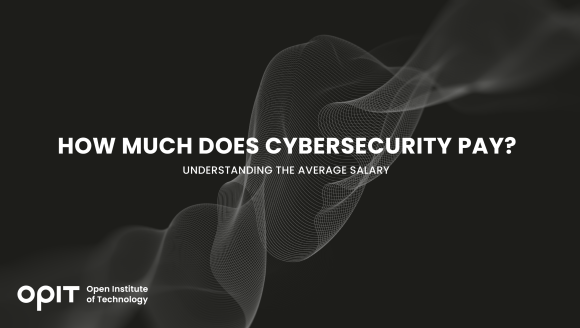

Cybersecurity jobs are better paid than you might expect. Given the skyrocketing significance of the data protection industry, that shouldn’t come as much of a surprise.
If you’ve been wondering what cybersecurity experts take home at the end of the day, this article will reveal the numbers involved. After all, knowing what you could earn gives a clearer picture of whether this field would be worthwhile endeavor for you or not.
Factors Influencing Cybersecurity Jobs Salary
First, let’s look at what makes one cybersecurity job pay more than another. The distinction goes beyond how good an individual is with computers or their knowledge around firewalls, proxies, and the like. Location is also a big factor. Living in or around tech hubs usually means higher pay, but also much higher living costs.
There is also the factor of experience to consider. The more years in the field, the more your salary will grow.
Also, your education level and qualifications matter, too. However, whatever your skill or education level, demand for cybersecurity talent is high. Businesses everywhere are looking for cyber defenders. Therefore, skilled professionals are in a position to negotiate for high pay for their services.
Cybersecurity Salary Overview: Entry-Level vs. Experienced Workers
So, how much does cybersecurity pay? It’s worth noting that you might not make a huge sum right away. But the growth potential within the field is impressive. Entry-level salaries are decent, but as you climb the ranks, your salary will increase accordingly.
It will also depend on the type of job you do. Penetration testers, security analysts, or CISO chairs all have different salaries at different levels. The main thing to remember is that pay will often reflect your skills, so honing them is the main way to help your future earnings soar.
In Europe, starting figures for cybersecurity salary are around €37,000, and can grow to significant sums as you climb the ranks, especially in roles like CISOs where salaries can reach upwards of €180,000.
How Much Do Cybersecurity Professionals Make Globally?
If you’re thinking of taking your cybersecurity talents on a global tour, know that the cybersecurity average salary varies widely around the world. The figures are influenced by local market demand, economic conditions, and living expenses. However, here is a thought worth considering: remote work is changing the way payments for these fields are distributed globally. Now, you can live in one country and work for a company in another, potentially earning more than the local rate. For that reason, it’s an exciting time to explore international opportunities and the global demand to make the most of your skills.
But how much do cybersecurity professionals make in Europe? The salaries are excellent, but can vary depending on where you live. For instance, if you’re eyeing a spot as an entry-level cybersecurity analyst in Germany, you might be looking at an average of €52,539 ($57,420) in 2024. The numbers naturally vary based on role, experience, and location.
Entry-level cybersecurity analysts in the U.S. have starting salaries of around $68,202, rising up to $112,000 as a median figure. Meanwhile, a cyber security engineer in Japan can expect an average cybersecurity salary of around ¥6,963,427 (approximately USD $55,300) in 2024
Maximizing Your Cybersecurity Salary Potential
While the earnings sound appealing, you need the skills and knowledge to harness your earning potential. To climb the ladder, you must make strategic choices to earn the perks, more than anything, through continuous education. Since technology moves at breakneck speeds, and cyber threats emerge even faster, keeping up and staying ahead of the game means being a lifelong learner. Put simply, your education doesn’t end once you leave college or complete a course. As such, you should get extra certificates to show prospective employers that you aren’t being left behind.
However, don’t neglect the power of networking, either. It goes beyond an online presence or having a LinkedIn account. Engage with the cyber security community, attend industry meetups, present your own findings and projects, and lend a hand with open-source projects. Get to know people and you’ll gain opportunities you wouldn’t find in a job ad.
If you’re looking for a place to boost the skills and connections, OPIT is here to help. OPIT’s career-aligned online programs can catapult you into higher-earning roles.
OPIT’s Master’s in Cybersecurity
OPIT’s master’s program in Cybersecurity is one of the most efficient ways to gain the skills and knowledge that can propel you into the upper echelons of cybersecurity. The program is more than a traditional academic education in computer science and cybersecurity. It’s a challenging undertaking but rewards you with knowledge that you can apply in real-life circumstances right away, through practical sessions and workshops.
Over the course of this program, you’ll tackle digital forensics, encryption, firewalls, security systems, and also the strategic thinking behind secure network design. After all, cybersecurity thrives on critical thinking in stress-intensive circumstances and being flexible and creative enough to come up with solutions “on the spot.” However, you’ll be well-equipped for these trials by learning from the best in the industry, people who’ve been at the forefront of cybersecurity debate for years.
High Risk, High Reward
The salaries people earn within cybersecurity sphere reflect the major demand in the field and the skills necessary to complete the job effectively. If you play your cards right, you might be protecting the systems and IT infrastructures of major businesses, nonprofits, or governmental organizations. However, to get to that point, you must learn, and never stop learning. Just as importantly, never underestimate the power of networking and maintaining good relationships.
Programs like OPIT’s master’s degree in cybersecurity are some of the best ways to hone the skills from anywhere in the world, learning from the best in the industry, all at your own pace. Give it a try and see how much of a difference it can make.
Related posts

Source:
- Times of Malta, published on September 18th, 2025
4 min read
The gathering brought together academics and technology leaders from prominent European Institutions, such as Instituto de Empresa (IE University), OPIT itself and the Royal College of Arts, to explore how artificial intelligence is reshaping the university experience.
The OPIT AI Copilot has been trained on the institute’s complete academic archive, a collection created over the past three years that includes 131 courses, more than 3,500 hours of recorded lectures, 7,500 study resources, 320 certified assessments, and thousands of exercises and original learning documents.
Unlike generic AI tools, the Copilot is deeply integrated with OPIT’s learning management system, allowing it to track each student’s progress and provide tailored support.
This integration means the assistant can reference relevant sources within the learning environment, adapt to the student’s stage of study, and ensure that unreleased course content remains inaccessible.
A mobile app is also scheduled for release this autumn, that will allow students to download exercise and access other tools.
During examinations, the Copilot automatically switches to what the institute calls an “anti-cheating mode”, restricting itself to general research support rather than providing direct answers.
For OPIT’s international community of 500 students from nearly 100 countries, many of whom balance studies with full-time work, the ability to access personalised assistance at any time of day is a key advantage.
“Eighty-five per cent of students are already using large language models in some way to study,” said OPIT founder and director Riccardo Ocleppo. “We wanted to go further by creating a solution tailored to our own community, reflecting the real experiences of remote learners and working professionals.”
Tool aims to cut correction time by 30%
The Copilot will also reduce administrative burdens for faculty. It can help grade assignments, generate new educational materials, and create rubrics that allow teachers to cut correction time by as much as 30 per cent.
According to OPIT, this will free up staff to dedicate more time to teaching and direct student engagement.
At the Milan event, Rector Francesco Profumo underlined the broader implications of AI in higher education. “We are in the midst of a deep transformation, where AI is no longer just a tool: it is an environment that radically changes how we learn, teach, and create,” he said.
“But it is not a shortcut. It is a cultural, ethical, and pedagogical challenge, and to meet it we must have the courage to rethink traditional models and build bridges between human and artificial intelligence.”
OPIT was joined on stage by representatives from other leading institutions, including Danielle Barrios O’Neill of the Royal College of Art, who spoke about the role of AI in art and creativity, and Francisco Machin of IE University, who discussed applications in business and management education.
OPIT student Asya Mantovani, also employed at a leading technology and consulting firm in Italy, gave a first-hand account of balancing professional life with online study.
The assistant has been in development for the past eight months, involving a team of OPIT professors, researchers, and engineers.
Ocleppo stressed that OPIT intends to make its AI innovations available beyond its own institution. “We want to put technology at the service of higher education,” he said.
“Our goal is to develop solutions not only for our own students, but also to share with global institutions eager to innovate the learning experience in a future that is approaching very quickly.”

From personalization to productivity: AI at the heart of the educational experience.
Click this link to read and download the e-book.
At its core, teaching is a simple endeavour. The experienced and learned pass on their knowledge and wisdom to new generations. Nothing has changed in that regard. What has changed is how new technologies emerge to facilitate that passing on of knowledge. The printing press, computers, the internet – all have transformed how educators teach and how students learn.
Artificial intelligence (AI) is the next game-changer in the educational space.
Specifically, AI agents have emerged as tools that utilize all of AI’s core strengths, such as data gathering and analysis, pattern identification, and information condensing. Those strengths have been refined, first into simple chatbots capable of providing answers, and now into agents capable of adapting how they learn and adjusting to the environment in which they’re placed. This adaptability, in particular, makes AI agents vital in the educational realm.
The reasons why are simple. AI agents can collect, analyse, and condense massive amounts of educational material across multiple subject areas. More importantly, they can deliver that information to students while observing how the students engage with the material presented. Those observations open the door for tweaks. An AI agent learns alongside their student. Only, the agent’s learning focuses on how it can adapt its delivery to account for a student’s strengths, weaknesses, interests, and existing knowledge.
Think of an AI agent like having a tutor – one who eschews set lesson plans in favour of an adaptive approach designed and tweaked constantly for each specific student.
In this eBook, the Open Institute of Technology (OPIT) will take you on a journey through the world of AI agents as they pertain to education. You will learn what these agents are, how they work, and what they’re capable of achieving in the educational sector. We also explore best practices and key approaches, focusing on how educators can use AI agents to the benefit of their students. Finally, we will discuss other AI tools that both complement and enhance an AI agent’s capabilities, ensuring you deliver the best possible educational experience to your students.
Have questions?
Visit our FAQ page or get in touch with us!
Write us at +39 335 576 0263
Get in touch at hello@opit.com
Talk to one of our Study Advisors
We are international
We can speak in:
